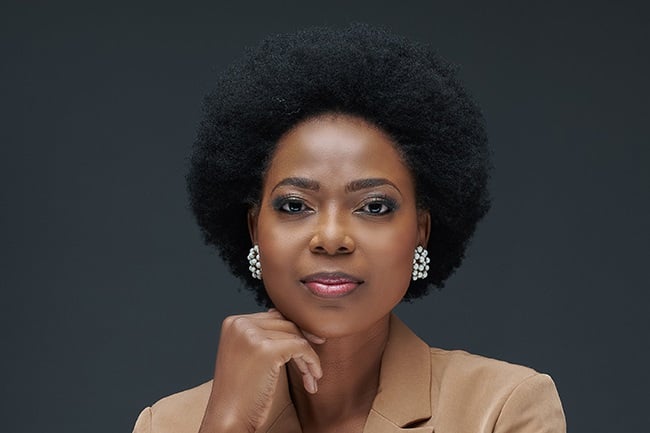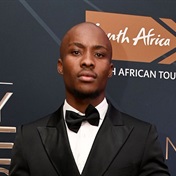
South Africa will get a chance to learn untold stories of the famed 400-year reign of Queen Modjadji, the powerful Rain Queen.
Mzansi Magic is gearing up to release its upcoming drama series Queen Modjadji in July 2024. With production well underway, the nation will see the enchanting story of the hereditary ruling monarch of the Balobedu people in Limpopo.
One aspect of the series that sparks great interest is how it will give a platform to and representation of the Balobedu people and their native language, Khelobedu.
Having just announced some of the star-studded cast of the show including Ngele Ramulondi as the young teenage Queen Modjadji, Helen Lebepe as the queen’s closest confidante Raisibe and newcomer Masutang Rasekele as the queen’s mother Dzugudini and the production’s language advisor, many are on the edge of their seats waiting to see this tale unfold.
READ MORE | Shudufhadzo Musida, Ndavi Nokeri and more cast in Queen Modjadji
The trailer of the series starts with Masutang’s Dzugudini narrating the story of the prophecy of the Rain Queen – all in the indigenous language of the Balobedu people, Khelobedu.
Touring the sprawling lands of the Queen Modjadji set, TRUELOVE got to know more about the yet-to-be-made official language.
A rich and intertwining history
The population of the Balobedu people is around two million and when hearing the language, one would hear remnants of Tshivenda and Sepedi.
Duma Ndlovu, the executive producer of Queen Modjadji, explains the history behind the language.
“The Vendas and the Lobedus come from what is called the Kalanga. So, when they came down – and the Shonas of Zimbabwe – when they came down, they were one group and they started splitting up as they came down to the Zimbabwe region through the Mapungubwe area.
“So, interestingly, we all thought that Khelobedu would be closer to Sepedi, only to find that no it’s more closer to Venda than it is to Sepedi because they come from the same mother tongue, which is Kalanga.”
Duma explains how this series is the first time the Khelobedu language is being written in some kind of formal capacity in the form of scripts, translations, subtitles and more for the series.
The importance of representation
Masutang and Helen are both native members of the Balobedu people and are fluent in the language. They express just how much of an honour it is for them to bring their culture to the masses.
“For me, personally, I think I was very excited. A little bit overwhelmed because it’s not every day where you find a place where you feel like you’re well-represented. So, I felt for me, this is history, groundbreaking and it was amazing and I’m very happy that I’m alive to experience the documentation of the Balobedu people because they are amazing people. So, it’s difficult to contain such amazing people and it’s beautiful, it’s really beautiful,” Masutang explains.
Helen affirms Masutang’s excitement by saying, “Even for me as well. I was just like, wow, finally the story of my ancestors and I just hope my great-grandmother and my grandmother are really happy.
“I remember telling my colleagues that it can end here. Not that I want my career to end! I’m just saying if I’ve told this story, the story of my people, I’ve represented the language, anything can happen now … so that people can know where we originate from, who we are and what we’re about. Everything about our culture, our language, our gear – I have no words, actually. I’m honoured and it’s such a privilege.”
READ MORE | Sibongile and the Dlaminis S1 wraps with 2 million live views
While Ngele is Venda and had to learn to speak the language for the role, she shares just how 'seen' she feels being a part of a story that spotlights the complex and engaging lives of the world of the Balobedu people and their origin.
“Growing up, you always hear there’s a lot of different dialects, also ka Tshivenda by itself but when cultures are so close, there’s so many languages that you grow up hearing even if you can’t speak. So, me with the audition, I thought that the language is going to be Tshivenda but after being asked can I speak Khelobedu, I had to be honest and say I can’t.
“But it was a challenge that I was really willing to learn because it was a story that I really really wanted to be part of and tell and just having a team like Hope and our other language coaches. They really do give you the right resources to be able to learn the language enough for the time when shooting comes then you’re completely confident in the fact that I can tell the story in the authentic mother tongue. So, ja, it’s teamwork and it’s bravery and self-belief.”











